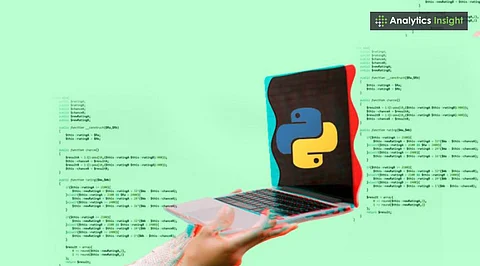

A daily structure helps complete beginners build skills in Python programming consistently.
Learning Python step by step prevents overwhelm and keeps progress focused.
Practicing projects from day 21 onwards boosts real-world understanding.
Doubting, How to Learn Python? Python is one of the most flexible and beginner-friendly programming languages in existence. If someone is interested in getting a job in web development, data science, or automation, Python is a good starting point. Is it possible to learn Python in 30 days?
Definitely yes if the learning is focused, structured, and consistent. Without a roadmap, one might be hopping between random tutorials. An efficient 30-day learning plan will allow the learner to stay focused and acquire real skills.
Here is a summary of how a beginner can learn to program in Python in a month without burning out or losing motivation.
Days 1–7 are primarily focused on grasping the fundamentals.
Topics to Cover: 2, data types, basic operators, input/output, and comments.
Tools to Set Up: Install Python, get comfortable with IDLE, or use an online IDE such as Replit.
Tip: Write trivial snippets of code for 30–60 minutes every day to anchor basics.
By the end of Week 1, learners should be able to write a simple calculator of some sort or a number-guessing game.
Now that the basics have been covered, let's move into logic and data handling.
Topics: Conditionals (if/else), loops, functions, lists, dictionaries, sets, and tuples.
Exercises: Build a to-do app using list operations or make a simple quiz with conditionals.
Goal: Learn how to break problems down into smaller parts.
This week will focus on learning Python step by step, rather than just memorizing syntax.
Real tasks will now be taught in the third week, such as reading files and handling exceptions.
Topics: Working with files, handling errors with try/except blocks, and working with external libraries.
Tools: Learn to install packages with pip, like requests or pandas.
Project Idea: An idea for weather-checking by using an API.
This is where learners start to see how Python programming nurtures real-world applications.
By now, learners have the foundation needed to build useful mini-projects.
Focus: Select 2–3 small projects that integrate all the knowledge gained.
Ideas: A budget tracker, a basic chatbot, or a web scraper.
Tip: Keep learning by building—try solving beginner problems on platforms like HackerRank or LeetCode.
This final phase builds confidence and shows that the 30-day Python challenge is more than theory—it’s practical.
An hour or less per day will be enough to see some rate of progress. More important than the speed, however, is to show up every day consistently. That is how even beginners complete the 30-day Python challenge successfully.
It's completely fine to feel stuck sometimes. This is an essential part of the learning process. What matters is to keep going, revisit the problem, and start looking for answers in communities such as Stack Overflow, Reddit, or local groups that are readily available.
Also read: 10 Best YouTube Channels to Learn Python Like a Pro.
People curious about learning Python must understand that it's not possible to learn Python in a hurry. Like most things, it's about 'building' layer by layer to start programming and start writing programs that deliver value. A well-organised 30-day plan on Python for beginners can enable someone with no experience to learn.
The language is powerful, the syntax is user-friendly, and there is an ongoing demand for capable Python developers in all walks of life. Whether one is looking to change career paths, is interested in automating a hobby, or is following a data science journey, the process remains the same. What matters is starting today.
As long as learners remain steady and intentional, this 30-day plan will not just be successful, it will be transformative.
